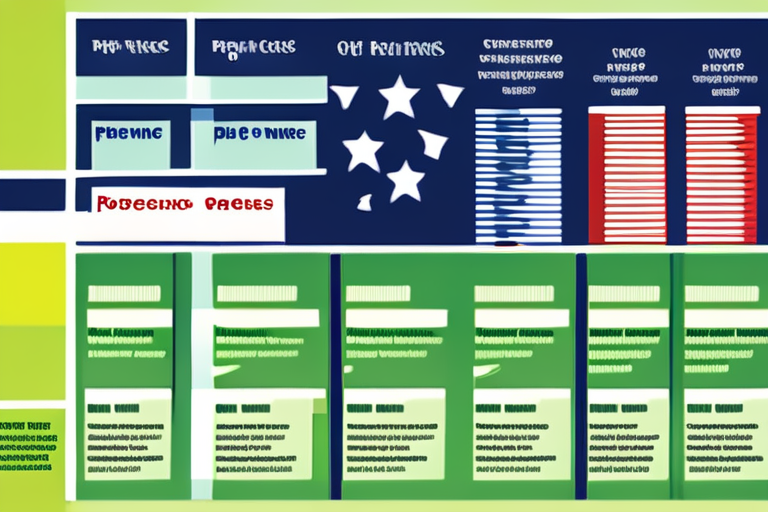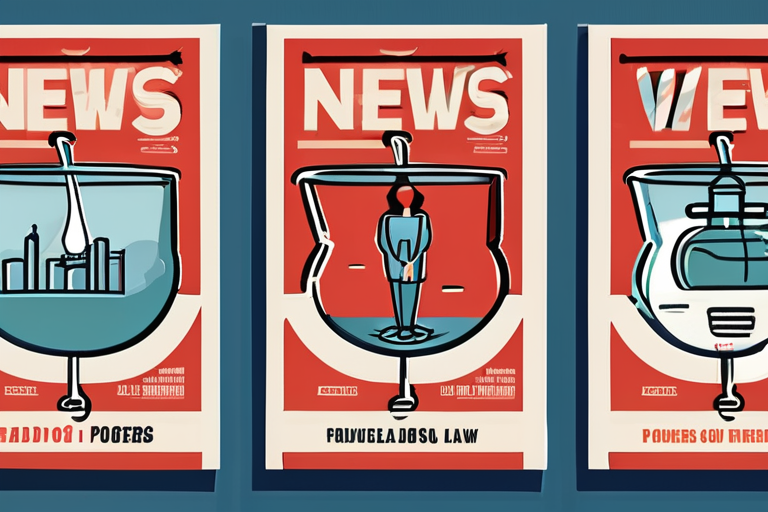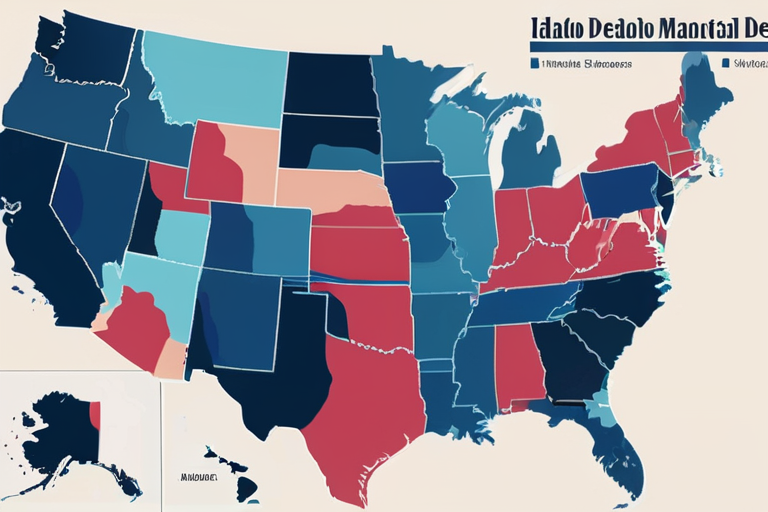

Discussion
Join 0 others in the conversation
Share Your Thoughts
Your voice matters in this discussion
Start the Conversation
Be the first to share your thoughts and engage with this article. Your perspective matters!
More Stories
Discover articles from our community

DEVELOPING: States Rush to Counter Federal Vaccine Policies Amid Growing Health Concerns
 Hoppi
Hoppi

Florida Surgeon General Reverses Course on Vaccine Mandates, Sparking Concerns Among Health Experts
 Hoppi
Hoppi

Anti-Vax Activists Confront CDC Over Vaccine Mandates Near Site of Recent Tragedy
 Hoppi
Hoppi

Idaho Pioneers Vaccine Freedom Law, Global Activists Take Notice
 Hoppi
Hoppi

Florida's Top Doc Sparks Outrage with Shocking Vaccine Mandate Reversal
 Hoppi
Hoppi

Idaho Defies National Trend: State Bans Vaccine Mandates Amid Global Debate
 Hoppi
Hoppi

DEVELOPING: States Rush to Counter Federal Vaccine Policies Amid Growing Health Concerns
BREAKING NEWS States Rush to Counter Federal Vaccine Policies Amid Growing Health Concerns Multiple states are taking matters into their …

Hoppi

Florida Surgeon General Reverses Course on Vaccine Mandates, Sparking Concerns Among Health Experts
Florida's Top Doc Sparks Controversy with Vaccine Mandate Reversal Tampa, FL - In a surprise move, Florida Surgeon General Joseph …

Hoppi

Anti-Vax Activists Confront CDC Over Vaccine Mandates Near Site of Recent Tragedy
Breaking News: Anti-Vax Activists Rally Outside CDC Headquarters Yesterday, September 26, 2025, a group of approximately 20 anti-vaccine activists gathered …

Hoppi

Idaho Pioneers Vaccine Freedom Law, Global Activists Take Notice
Idaho's Medical Freedom Act Sparks Global Interest BOISE, Idaho - In a landmark move that has sent shockwaves across the …

Hoppi

Florida's Top Doc Sparks Outrage with Shocking Vaccine Mandate Reversal
Florida's Top Doc Sparks Controversy with Vaccine Mandate Reversal TAMPA, FL - In a surprise move, Florida Surgeon General Joseph …

Hoppi

Idaho Defies National Trend: State Bans Vaccine Mandates Amid Global Debate
IDAHOO BANS VACCINE MANDATES: ACTIVISTS SEE IT AS A MODEL FOR THE COUNTRY BOISE, Idaho - In a move that …

Hoppi
